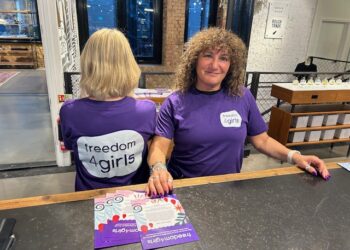Yesterday, Vulture published a harrowing exposé by Lila Shapiro detailing allegations of sexual assault, coercion, and abuse against Neil Gaiman, the celebrated author of Coraline, The Sandman, and other beloved works. The article is one of the most deeply disturbing cases of sexual coercion and assault I have read and I must advise you to approach the piece with caution, if at all, if you are a survivor.
Trigger Warning: The following content contains themes that readers may find disturbing, including details of sexual assault and violence.
Shapiro’s reporting lays out decades of alleged abuse and misconduct by Neil Gaiman, often involving women much younger than him, many of whom were fans or employees. The accounts span years and continents, describing behaviour that included coercion, manipulation, and the misuse of BDSM practices to justify non-consensual acts. The women involved describe being groomed, gaslit, and subjected to degrading treatment by Gaiman.
One of the most detailed accounts comes from Scarlett Pavlovich, a former babysitter for Gaiman and his estranged wife, Amanda Palmer. Scarlett describes an encounter in which Gaiman coerced her into a bath on her first night working for him, only for him to join her uninvited, naked, and sexually assault her. Over the following weeks, Scarlett endured repeated sexual violence, including an incident in which Gaiman used butter as lubricant after she screamed “no” during an attempted assault. He allegedly referred to her as his “slave” and forced her to perform degrading acts, some in the presence of his child.
Pavlovich’s story is one of many. Other women describe similar patterns: Gaiman allegedly exploiting his power and charm to isolate and manipulate them. In some cases, women were allegedly coerced into BDSM dynamics they did not consent to, with Gaiman reportedly dismissing their protests as a failure to “submit properly.” Survivors say his abuse left them traumatised, confused, and questioning their own realities.
The Vulture article highlights how Gaiman’s curated persona as a feminist ally made it harder for victims to come forward. His books and public statements often centred on themes of empathy, marginalisation, and empowerment, creating a “nice guy” image that provided cover for the alleged abuse. One woman described the experience of being manipulated by Neil Gaiman as akin to being lured by an anglerfish, where his soft-spoken, approachable manner was the glowing light disguising the predator beneath.
The revelations echo a disturbing trend where men in positions of power and influence adopt feminist language and ideals to build trust and manipulate women. This is not the first time the public has confronted this dynamic.
Marilyn Manson, for instance, was accused by multiple women of physical and emotional abuse under the guise of consensual BDSM. Survivors described him as using his “dark artist” persona to normalise violence, isolating and manipulating partners until they felt complicit in their mistreatment. Similarly, Armie Hammer allegedly coerced women into violent sexual acts, some of which he justified using language from BDSM culture, despite survivors saying they never agreed to such dynamics.
Recently, Justin Baldoni, known for his Man Enough podcast that challenges toxic masculinity, has faced scrutiny for allegations of sexism and misogyny in his personal and professional life. While not accused of criminal behaviour like Manson or Gaiman, Baldoni’s example illustrates how some men use feminism as a brand to shield themselves from accountability.
What makes the Neil Gaiman allegations particularly unsettling is the level of trust he cultivated within feminist and progressive spaces. Gaiman’s own words in years past, such as a tweet proclaiming, “I believe survivors. Men must not close our eyes and minds to what happens to women in this world,” now ring hollow in the wake of these accusations.

The story also raises larger questions about how predators misuse BDSM as a cover for abuse. BDSM, when practised consensually, relies on clear communication, mutual respect, and established boundaries. It is rooted in trust, not violence. Yet, Gaiman and others like him have reportedly twisted these principles, using the stigma and misunderstanding around BDSM to mask their actions and silence victims. By claiming their behaviour was part of consensual dynamics, they make survivors feel isolated, doubted, and complicit in their own harm.
These allegations force us to grapple with difficult realities about how feminist spaces are co-opted. While feminism has long welcomed men into its fold as allies and advocates, it is critical to interrogate the motivations and actions of those who claim the label. Too often, men who enter these spaces are given the benefit of the doubt, their words taken at face value even when their actions suggest otherwise.
The feminist movement must reckon with the risks of opening its doors to those who see it as an opportunity rather than a responsibility. How do we ensure that men who claim to support feminism are held accountable? How do we protect women from those who use feminist language as a shield for their own harmful behaviour?
As Gaiman’s accusers bravely come forward, their stories remind us of the importance of centring survivors’ voices, even when the accused is someone we once admired. These revelations also highlight the need for greater scrutiny of men who position themselves as feminist allies. We must move beyond performative allyship and demand genuine accountability from those who claim to support gender equality.
The Vulture article is a painful read, but it is essential for understanding the pervasive ways abuse is enabled and concealed in our society. Survivors like Scarlett Pavlovich, who risk everything to share their stories, deserve our attention, empathy, and support. They also deserve a feminist movement that refuses to turn a blind eye, even when the accused is a beloved figure.
We owe it to survivors to build a world where their voices are not drowned out by the powerful men who hurt them.












